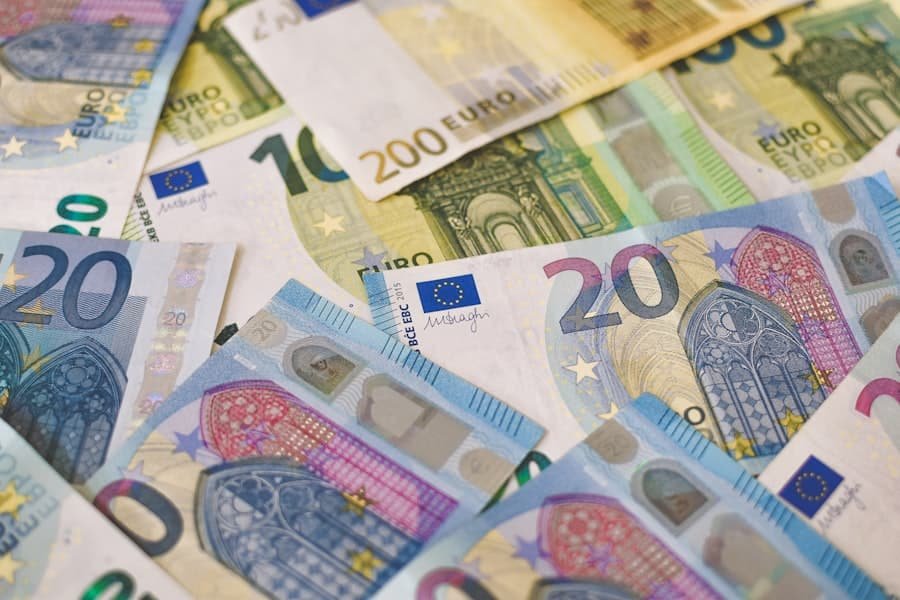Currency manipulation is the deliberate intervention in foreign exchange markets by a country’s monetary authorities to influence the value of its currency. This can be achieved through various methods, including buying or selling large amounts of currency, setting artificial exchange rates, or implementing capital controls. The primary objective of currency manipulation is often to gain a competitive edge in international trade.
By devaluing their currency, countries can make their exports more affordable and imports more expensive. This can boost export-driven economies, maintain trade surpluses, or protect domestic industries from foreign competition. Currency manipulation is a controversial topic in international trade due to its potential impact on global economic stability and fair trade practices.
It frequently causes tension between nations when one country perceives another’s currency policies as detrimental to its economic interests. As a result, currency manipulation remains a subject of ongoing debate and scrutiny in international trade and finance circles.
Key Takeaways
- Currency manipulation refers to the deliberate action of a country to artificially influence the exchange rate of its currency to gain an advantage in international trade.
- Currency manipulation can lead to trade imbalances, as it affects the competitiveness of a country’s exports and imports.
- Distorted market prices due to currency manipulation can impact the allocation of resources and lead to inefficiencies in the global economy.
- Addressing currency manipulation in international trade agreements is crucial to ensure fair and transparent trade practices.
- Strategies for mitigating the effects of currency manipulation on trade relations include monitoring exchange rate policies and implementing measures to promote exchange rate stability.
The Impact of Currency Manipulation on Trade Relations
The Competitive Edge of Currency Devaluation
When a country deliberately devalues its currency, it effectively lowers the price of its exports in foreign markets, making them more competitive compared to goods and services from other countries. This can lead to an increase in the country’s export volume and a corresponding decrease in its import volume, resulting in a trade surplus.
The Dark Side of Currency Manipulation
On the other hand, a country with an artificially strong currency may experience a decrease in its export volume and an increase in its import volume, leading to a trade deficit. Currency manipulation can also lead to trade imbalances between countries, as it distorts the relative prices of goods and services in international markets. This can create unfair competition and hinder the ability of countries to compete on a level playing field.
Global Consequences and Geopolitical Ramifications
Currency manipulation can contribute to increased volatility and uncertainty in global financial markets, as it distorts exchange rates and undermines the stability of the international monetary system. Furthermore, the impact of currency manipulation on trade relations can extend beyond economic considerations to geopolitical and diplomatic dimensions. Countries that feel disadvantaged by another’s currency policies may seek recourse through trade disputes, tariffs, or other retaliatory measures, leading to heightened tensions and strained relations between nations.
How Currency Manipulation Distorts Market Prices

Currency manipulation can distort market prices by altering the relative value of currencies and thereby affecting the prices of goods and services in international markets. When a country artificially devalues its currency, it effectively lowers the price of its exports in foreign markets, making them more affordable for international buyers. This can lead to an increase in demand for the country’s exports, as they become more competitive compared to goods and services from other countries.
Conversely, a country with an artificially strong currency may find its exports becoming more expensive in foreign markets, leading to a decrease in demand for its goods and services. The distortion of market prices caused by currency manipulation can create unfair competition and disrupt the natural flow of trade between countries. It can also lead to market inefficiencies and misallocations of resources, as prices no longer accurately reflect supply and demand dynamics.
Additionally, currency manipulation can contribute to increased volatility and uncertainty in global financial markets, as it distorts exchange rates and undermines the stability of the international monetary system. Furthermore, currency manipulation can have spillover effects on other asset classes, such as stocks, bonds, and commodities, as changes in exchange rates impact the value of investments denominated in different currencies. This can create additional challenges for investors and businesses operating in international markets, as they navigate the complexities of fluctuating exchange rates and distorted market prices.
Overall, currency manipulation has the potential to disrupt market equilibrium and create distortions that reverberate throughout the global economy.
The Role of Currency Manipulation in Trade Imbalances
Currency manipulation plays a significant role in contributing to trade imbalances between countries. When a country deliberately devalues its currency, it effectively lowers the price of its exports in foreign markets, making them more competitive compared to goods and services from other countries. This can lead to an increase in the country’s export volume and a corresponding decrease in its import volume, resulting in a trade surplus.
Conversely, a country with an artificially strong currency may experience a decrease in its export volume and an increase in its import volume, leading to a trade deficit. Trade imbalances caused by currency manipulation can have wide-ranging implications for global economic stability and fairness in trade relations. They can create tensions between countries and hinder the ability of nations to compete on a level playing field.
Additionally, persistent trade imbalances can lead to unsustainable debt levels and financial vulnerabilities, as countries rely on external financing to fund their consumption and investment needs. Furthermore, trade imbalances resulting from currency manipulation can contribute to increased protectionism and trade disputes between countries, as they seek to address perceived unfair advantages or disadvantages in their trade relations. This can lead to a breakdown in international cooperation and hinder efforts to promote free and open trade.
As such, addressing the role of currency manipulation in trade imbalances is crucial for fostering a more equitable and sustainable global trading system.
The Effect of Currency Manipulation on Export and Import Dynamics
Currency manipulation has a profound effect on export and import dynamics between countries. When a country deliberately devalues its currency, it effectively lowers the price of its exports in foreign markets, making them more competitive compared to goods and services from other countries. This can lead to an increase in the country’s export volume and a corresponding decrease in its import volume, resulting in a trade surplus.
Conversely, a country with an artificially strong currency may experience a decrease in its export volume and an increase in its import volume, leading to a trade deficit. The effect of currency manipulation on export and import dynamics can create imbalances in trade relations between countries, as it distorts the relative prices of goods and services in international markets. This can lead to unfair competition and hinder the ability of countries to compete on a level playing field.
Additionally, it can contribute to increased volatility and uncertainty in global financial markets, as it distorts exchange rates and undermines the stability of the international monetary system. Furthermore, the effect of currency manipulation on export and import dynamics can have spillover effects on other aspects of the economy, such as employment levels, inflation rates, and overall economic growth. It can also impact consumer purchasing power and business investment decisions, as changes in exchange rates influence the cost of imported goods and raw materials.
Overall, currency manipulation has a significant impact on export and import dynamics and can create challenges for countries seeking to maintain balanced and sustainable trade relations.
Addressing Currency Manipulation in International Trade Agreements

Leveling the Playing Field
By addressing currency manipulation, trade agreements can help create a more level playing field for countries to compete in international markets. This can reduce the potential for trade imbalances and tensions between trading partners, promoting fair and open trade relations.
Fostering Transparency and Accountability
Addressing currency manipulation in international trade agreements can help foster greater transparency and accountability in the conduct of monetary policies by participating countries. By establishing mechanisms for monitoring and addressing instances of currency manipulation, trade agreements can promote greater adherence to market-based exchange rate systems and discourage unfair practices that distort market prices.
Building Trust and Stability
By demonstrating a commitment to upholding fair trade practices, addressing currency manipulation in international trade agreements can help build trust and cooperation between countries. This can contribute to greater stability and predictability in global financial markets, as well as create an environment conducive to sustainable economic growth and development.
Strategies for Mitigating the Effects of Currency Manipulation on Trade Relations
There are several strategies that can be employed to mitigate the effects of currency manipulation on trade relations between countries. One approach is to enhance transparency and communication between central banks and monetary authorities to promote greater understanding of each other’s monetary policies and exchange rate regimes. This can help reduce uncertainty and speculation in global financial markets, as well as foster greater cooperation in addressing potential instances of currency manipulation.
Another strategy is to strengthen multilateral institutions such as the International Monetary Fund (IMF) and the World Trade Organization (WTO) to provide oversight and enforcement mechanisms for addressing currency manipulation. By empowering these institutions with greater authority to monitor exchange rate policies and intervene when necessary, countries can work together to uphold fair trade practices and prevent distortions caused by artificial changes in exchange rates. Furthermore, promoting greater exchange rate flexibility through market-based mechanisms can help reduce the potential for currency manipulation by allowing exchange rates to adjust based on supply and demand dynamics.
This can create a more level playing field for countries to compete in international markets and reduce the potential for trade imbalances caused by artificially distorted prices. Overall, employing these strategies can help mitigate the effects of currency manipulation on trade relations and promote greater fairness and stability in global economic interactions. By fostering greater cooperation and adherence to market-based exchange rate systems, countries can work together to create an environment conducive to sustainable economic growth and development.
If you’re interested in learning more about how currency manipulation affects international trade relations, you should check out this article on The Econosphere’s blog. The article provides a comprehensive analysis of the impact of currency manipulation on global trade and offers insights into how countries can address this issue.
FAQs
What is currency manipulation?
Currency manipulation refers to the deliberate and artificial devaluation or appreciation of a country’s currency by its government in order to gain an unfair advantage in international trade.
How does currency manipulation affect international trade relations?
Currency manipulation can distort the balance of trade between countries by making exports cheaper and imports more expensive. This can lead to trade imbalances and unfair competition, which can strain international trade relations.
What are the consequences of currency manipulation on international trade?
The consequences of currency manipulation on international trade can include trade imbalances, loss of jobs in importing countries, and reduced competitiveness for domestic industries in the manipulated currency’s country.
How do countries respond to currency manipulation?
Countries may respond to currency manipulation through diplomatic channels, imposing tariffs or other trade barriers, or seeking recourse through international trade organizations such as the World Trade Organization.
Is currency manipulation illegal?
While currency manipulation is not explicitly illegal under international law, it is widely considered to be an unfair trade practice and is subject to scrutiny and criticism from other countries and international trade organizations.








